Explora los resultados de búsqueda web relacionados con este dominio.
... Year This easy-to-use yet comprehensive how-to manual provides answers and explanations to the questions and concerns of new parents. From baby-care basics to month-by-month development to common illnesses to health and safety, this book covers it all. There’s also a wealth of tips and ...
With special sections on the older sibling; selecting the right physician; seasonal concerns and traveling with baby; managing childhood illnesses; and nurturing the adopted baby, the low-birthweight infant, and the baby with specific problems. ... Year This easy-to-use yet comprehensive how-to manual provides answers and explanations to the questions and concerns of new parents. From baby-care basics to month-by-month development to common illnesses to health and safety, this book covers it all. There’s also a wealth of tips and advice for couples coping with the many changes to daily life that come with parenthood, as well as full-color photography and graphics throughout the book.Raising a baby, especially for the first time, is exciting and challenging. This is a time for developing the bonds that will last a lifetime, providing your child with the inner resources to build self-esteem and the ability to relate positively with others. It’s also the time for parents to discover who this new person is.What does watching TV do to a child’s brain? What’s the best way to handle temper tantrums? Scientists know. Bridges the gap between what scientists know and what parents practice. Through fascinating and funny stories, the author, a developmental molecular biologist and dad, unravels how a child’s brain develops – and what you can do to optimize it.All new parents are eager to help their baby discover the world around them, and BABY PLAY was designed to help parents engage their infant in activities that will encourage developmental skills. From the first month home through the twelfth, BABY PLAY offers doctor-approved, age-appropriate activities that stimulate discovery, begin communication, and nurture parental bonding. ... Holds and manipulates objects; sucks on everything! ... Demonstrates memory by waiting while feeding is prepared and stopping crying when a person enters the room ... Our recommendations for books on child development for parents.
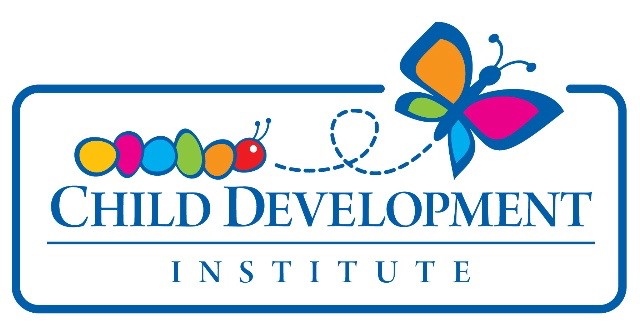

Set limits for screen time for ... care and develop a media use plan for your family. Learn more: ... CDC's Parent Information (Children 4–11 years) has information to help you guide your child in leading a healthier life. CDC's Healthy Weight Information has tips for parents ...
Set limits for screen time for your child to no more than 1 hour per day of quality programming, at home, school, or afterschool care and develop a media use plan for your family. Learn more: ... CDC's Parent Information (Children 4–11 years) has information to help you guide your child in leading a healthier life. CDC's Healthy Weight Information has tips for parents – Ideas to help children maintain a healthy weight.Visit this website to learn more about emotional problems, learning disabilities and other health and development concerns. Just in Time Parenting's site provides quality, research-based information to families at the time it can be most useful. National Highway Traffic Safety Administration (NHTSA) has information on safety recalls and safety tips for children riding in motor vehicles, walking, biking, playing outside, waiting at school bus stops, and more.StopBullying.gov provides information from various government agencies on how children, parents, educators and others in the community can prevent or stop bullying · Teens Health site for information on healthy eating for children and teenagers, safety tips for your child when you can't be there, and other important health and safety topics. ... The early years of a child’s life are very important for their health and development.As a parent you give your children a good start in life—you nurture, protect, and guide them. Learn about developmental milestones, including emotional and social development, for children from 6 to 8 years old.
The authors also provide a dozen strategies to help parents relate to their kids in developmentally appropriate ways. · The 2024 Forbes Vetted Best Product Awards are here: Explore our 150 top-recommended items across categories after extensive research and testing. ... Although this series was first published in 1983, it was authored by the late psychologist Louise Bates Ames, a pioneer in child ...
The authors also provide a dozen strategies to help parents relate to their kids in developmentally appropriate ways. · The 2024 Forbes Vetted Best Product Awards are here: Explore our 150 top-recommended items across categories after extensive research and testing. ... Although this series was first published in 1983, it was authored by the late psychologist Louise Bates Ames, a pioneer in child development and cofounder of the Gesell Institute Of Child Development.There are 10 books in the series, each dedicated to a child’s age—Your Two-Year-Old, Your Three-Year-Old and so on up to the final book, which is dedicated to 10 to 14-year-olds and their development. For each age, the book covers common issues kids face, and it provides ways to connect with your kids. ... Founded on the principle that we are all good inside, this book teaches parents how to connect with their kids.If you’re like many parents today who are trying to simplify their lives and reduce both physical and mental clutter, this book is for you. It will help you reduce the amount of things you have in your home, develop predictable routines for your family and create a calm environment. It’s written by a school counselor and private family counselor-therapist. You’ll learn how to live a lifestyle and pace that’s appropriate for raising young children.According to Levy, this is a “fantastic book for explaining to parents what executive functioning skills are (skills that relate to planning, organization and time management) and strategies for helping their child develop these skills, which are crucial for success in school.” Like many other books on this list, it will help you realize your child’s strengths as you make small changes to guide them toward improving their organizational and executive functioning skills, from completing homework to just remembering it exists.
The legs shouldn't hang straight down because it can interfere with hip development and possibly lead to hip dysplasia (a deformation of the hip joint). Your baby's legs should be spread apart and the legs should be straddling your body, which allows for healthy hip positioning, says Dr.
Parenting · Babies & Newborns · Baby Safety · Newborn Baby Care: Your Ultimate Checklist · MORE IN · Newborn Baby Care: Your Ultimate Checklist · Overview · Newborn Baby Care: Your Ultimate Checklist · Care and Safety · How To Change a Diaper Like a Pro · How to Swaddle a Baby · How to Give a Newborn a Bath · 5 Safety Tips for Wearing a Baby Carrier · Why Your Child Needs a 5-Point Harness Car Seat · Development ·The legs shouldn't hang straight down because it can interfere with hip development and possibly lead to hip dysplasia (a deformation of the hip joint). Your baby's legs should be spread apart and the legs should be straddling your body, which allows for healthy hip positioning, says Dr.In addition, follow some basic safety tips: Avoid cooking or drinking hot beverages when your baby is in tow, don't travel in a vehicle while wearing your baby, and avoid activities that increase your baby's risk of falling (like running or bicycling).If you choose to babywear in a carrier, here are five expert tips to keep your baby safe.
:max_bytes(150000):strip_icc()/babywearing-baby-carrier-93d7056ab6734c80b663da85714b6aa8.jpg)
As they play, you can help them think of new ways to do things and solve problems. Children learn best when you follow their lead and build on their interests. Learn more about exploring with play. Positive parenting helps you feel more confident and less stressed about raising children.
Whether you are sharing parenting or parenting on your own, it can be easy to forget about working on adult relationships. Having strong relationships and good communication with other adults is important for your mental health and shows your child what healthy relationships are like. By caring for yourselves and taking care of your relationships, you are developing a safe and secure place for your new baby to come home to.Tips and videos to help you support the healthy development of your baby or toddler. Everything that happens to us shapes our brains. When caring adults and children do activities together, like talking, singing, reading and playing games, they help children begin to build a strong brain.As they play, you can help them think of new ways to do things and solve problems. Children learn best when you follow their lead and build on their interests. Learn more about exploring with play. Positive parenting helps you feel more confident and less stressed about raising children.Kids who grow up with positive parenting do well at school, make friends, feel good about themselves and are less likely to have behavioural or emotional concerns as they get older. For more information, read about 5 steps to positive parenting. Life is busier with a child in the family.

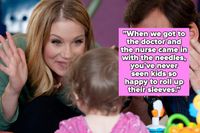
"I'll admit it was sneaky, but it worked. I never really had a problem getting them to nap or go to bed."
7."As a child, my parents told me if I did something bad, I was going to 'baby jail.' I believed in baby jail until I was like 12 years old. If I started crying in a public place, my dad would say, 'Stop that. You don't want to go to baby jail, do you?' And then I would just scream louder like, 'I don't want to go to baby jail!'8."I said that fairies came to the house in the middle of the night and would take away pacifiers, bottles, sippy cups, or anything my child was too old for. It worked great; there was no arguing over items they had outgrown. No one was to blame, not the child or the parent!10."My younger brother was my parent's fourth child, so my mother learned a trick or two by the time he came around. It was about making my brother think he had options and control of his situation.Everyone knows that lying is objectively bad. But when it comes to dealing with toddler tantrums, stubborn kids, and the like, all parents know that white lies are a necessary evil. And sometimes, you hear about a parenting trick that is just too good to forget.

LANSING, Mich. (WLNS) – It’s Parenting Connection Tuesday and 6 News is here for you with tips, strategies, and helpful reminders from child development experts on how we can be better parents and guardians. Today’s topic: 6 ways to raise an emotionally intelligent child.
A recent article from Parents.com discovered why it’s important to teach children how to be emotionally intelligent, not just academically smart. Experts say, being emotionally intelligent is the ability to understand, interpret, express, and manage their own emotions. Doctors say, this crucial set of skills will help kids learn empathy, how to regulate their emotions, and develop important social skills as they grow older.Teach healthy coping skills. By doing so, your child will be able to know how to calm themselves down, cheer themselves up, or face their fears. Develop problem-solving skills.Show empathy. Experts say, when displaying to your child that you value how they feel, the more they will be able to harness their emotions.
Throughout the year, our board ... doctors, developmental experts, and educators in the country—shares the latest thinking about raising healthy and happy kids. Now we've gathered our all-time favorite nuggets of advice in one place. Broadly speaking, this is what the experts say about how to be a good parent and improve your parenting skills: ... Read on to learn more about what this looks like in practice and how to put these expert tips to good use. Take charge. Children crave limits, ...
Throughout the year, our board of advisors—a brain trust of the best pediatric doctors, developmental experts, and educators in the country—shares the latest thinking about raising healthy and happy kids. Now we've gathered our all-time favorite nuggets of advice in one place. Broadly speaking, this is what the experts say about how to be a good parent and improve your parenting skills: ... Read on to learn more about what this looks like in practice and how to put these expert tips to good use. Take charge. Children crave limits, which help them understand and manage an often confusing world.We've gathered our all-time favorite parenting tips from our board of advisors in one outstanding article that will have a profound effect on your whole family.Your toddler's mission in life is to gain independence. So when they're developmentally capable of putting their toys away, clearing their plate from the table, and dressing themselves, let them. Giving a child responsibility is good for their self-esteem (and your sanity!).A healthy child instinctively knows how much to eat. If they refuse to finish whatever food is on their plate, just let it go. They won't starve. Eat at least one meal as a family each day. Sitting down at the table together is a relaxed way for everyone to connect—a time to share happy news, talk about the day, or tell a silly joke. It also helps your kids develop healthy eating habits.
:max_bytes(150000):strip_icc()/550_101309537-0f2c3c3b6a6b48a69e8fae5169a80587.jpg)

Are time-outs and punishments no longer effective in your home? Here are 5 positive parenting techniques you can use today to diffuse the power struggles in your home and find joy again in parenting. As a positive parenting educator, I’ve been helping families for 15+ years and can help yours too!
If your children are expected to make their beds, brush their teeth, and get dressed before eating breakfast, then maintain this routine every day. PRO TIP: Maintain the SAME schedule on weekends and holidays. That way, you won’t have to experience the backslide that comes on Monday morning! Do you maintain firm technology “policies?” What happens if your kids don’t respect your family’s rules for technology? To be the positive parent you strive to be, it’s essential that technology rules are clearly communicated and that kids know the consequence if those rules are broken.It’s the moment parents know all too well: the moment when the energy in your house totally shifts. All was calm until you handed breakfast to your toddler on the ever-so-controversial blue plate. You know, the one he liked YESTERDAY. Somehow overnight, everything you thought you knew about your child was suddenly wrong – “I want my sandwich in triangles, not rectangles!” or “I want the green cup, not the red one!” or “I hate those socks!!”And then in a moment of clarity, it hits you – you yelled at your child to stop yelling. The phrase Do as I say, not as I do, has never held so much weight. Oh, friend. I’ve been there and I know those feelings all too well. As a former yeller, I remember going to bed hoarse and defeated many nights until I decided there MUST be a better way. After years of studying Positive Parenting and Adlerian Psychology, I created a toolbox of strategies that completely transformed my family.It wasn’t a random display of poor judgment – it was motivated by something intrinsically in your child. Whether that was a lack of skills in managing his big feelings, a desire to get your attention, or a power play to assert his free will – there’s always a reason for the behavior. (Even if he doesn’t realize it – and most times he doesn’t!) The thing to remember is the behavior itself is simply the symptom. Our challenge as parents is figuring out what’s really underneath that frustrating behavior.
Parents and public health experts have a lot to say about what adolescent girls do on their phones. We asked teens to weigh in.
Psychologists suggest teenagers take social media breaks, and ask themselves as they scroll: “Do I feel bad about myself while looking at this?” Public health experts recommend “adult monitoring” and setting clear boundaries for when and where teens have access to their phones. The surgeon general wants parents to keep their child’s bedroom device-free for at least an hour before bedtime, and through the night.


The former influencer is sentenced to between four and 60 years in prison for abusing her children.
Police said the child then ran to a neighbour's house and asked for food and water. He had lacerations from being tied up with rope, according to police records. ... The arrests marked the end of a long and controversial YouTube career. Franke racked up more than two million subscribers to her channel 8 Passengers, which she started in 2015. It was a boom time for parenting vloggers, and she told a local news outlet that filming with her family helped her "live in the present and just enjoy the kids".A Utah mother whose harsh parenting advice made her a YouTube influencer has been sentenced to at least four years in prison for child abuse.In court, Utah prosecutor Eric Clarke said that two of Franke's children, aged nine and 11 at the time, lived in a "concentration camp-like setting" and called her a significant threat to the community.In court, Franke was in tears following the sentence. She apologised to her children and said: "I was so disoriented that I believed dark was light and right was wrong."
Show your child how to say things with their hands, like “bye bye.” Soon your child should try to imitate you and wave “bye-bye” on their own, making a relationship between a movement and a vocal expression.
Give your child things to put into containers and take out. They will try to take them out and put them back on their own, which is great for the development of eye-hand coordination skills.Here are some tips to help give your child the best start in life:Play hide and seek with your infant and see if they can find the objects you hide. You can hide something under a cloth, and say: “Where did it go?”, “Can you find it?”. You should see an increase in your child’s curiosity and willingness to find out what happened to the object.Show your child how to say things with their hands, like “bye bye.” Soon your child should try to imitate you and wave “bye-bye” on their own, making a relationship between a movement and a vocal expression.


Dr. Kristy Sommers shares some controversial parenting ideas she uses on her child. Sommers is a child development specialist and she teaches people about "evidence-based parenting."
The best parenting style for mental health - Upworthy › · Study shows that spanking is harmful to a child's mental health - Upworthy › · Dr. Becky Kennedy on teaching resiliency - Upworthy › · Moms have regular 'childcare swaps' to connect with their husbands - Upworthy › · Mom has troubles with emotional regulation - Upworthy › · Child therapist shares 5 tips for playing with kids - Upworthy ›How often do we hear people rationalize their decisions by saying, "That's what my parents did and I came out OK." This approach to raising children negates the fact that with every generation there are countless studies done on child development, many of which run counter to popular parenting wisdom from the past.Dr. Kristyn Sommer, who has a PhD in child development, has received a lot of attention on social media because of her dedication to teaching "evidence-based parenting." This expertise has made her an advocate for strategies that run counter to conventional parenting wisdom and have stirred up a bit of controversy."How To Discipline Your Child So They Actually Learn" is one of her more popular videos.
But their parents? Probably a little less sure. Is there a market for what they want to do? Is this really something my child can earn a living doing? And—how can I help them develop the traits to succeed?
Discover what the parents of 70 successful entrepreneurs did to set their kids up for success, and learn how you can support your child's entrepreneurial dreams.2. Passion: “I believe every child is born with a gift—something that makes their heart sing,” Bisnow says. Sadly, many children are never given the opportunity to discover and develop it. “Their parents may think it’s a waste of time and tell them to focus on their studies,” Bisnow says.In her interviews, she recognized common threads that give parents a framework for the traits that young entrepreneurs need most. I connected with Bisnow recently to get to the heart of these commonalities—here’s what we discussed. ... Bisnow identified six core traits of the successful entrepreneur—and unsurprisingly, the cultivation of these traits begins in childhood.It certainly calls for something beyond the “helicopter parenting” model where the parent is always hovering in the background, ready to jump in and save the day. “Entrepreneurs are bold risk takers who think outside the box,” says Bisnow. “If your children are only praised when they follow the rules, or if you’re only proud of them when they succeed, they won’t turn out to be entrepreneurs.”
Watching your child grow and develop is one of the most exciting parts of being a parent, especially in the early months when it seems every day brings a new skill.
If you have any concerns about your child’s development, or if they seem to be behind in more than one of the areas listed below, speak with your doctor. Source: Well Beings: A Guide to Health in Child Care, 3rd edition · Read, speak, sing to your baby: How parents can promote literacy from birthThe table below is a general guide for development from birth to age 4. Remember, all children are different and develop skills at different times.Children develop skills in several different areas:
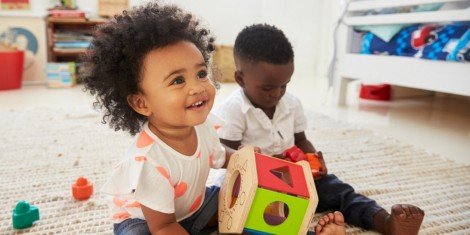
Reward desirable behavior as much as possible by verbal praise, touch or something tangible such as a toy, food or money. Both of you should have an equal share in the responsibility of discipline as much as possible. Want more help? Visit the [Parenting Skills] and the [Emotional & Social ...
A place to build parenting skills that help parents to discipline kids from toddlers to teens as well as to encourage children and adolescents to feel positive about themselves and to become the winners they were meant to be. Lots of practical solutions for parents as well as tips for improving communication,building positive relationships and other useful parenting skills. The goal of parenting is to teach kids to develop self-discipline.If one of you is disciplining a child and the other enters the room, that other person should not step in on the argument in progress. Reward desirable behavior as much as possible by verbal praise, touch or something tangible such as a toy, food or money. Both of you should have an equal share in the responsibility of discipline as much as possible. Want more help? Visit the [Parenting Skills] and the [Emotional & Social Development] sections of the CDI Store.Our recommendations for books on child development for parents.If your child is too mad or upset to give you the chips, don’t force the issue. Place your child in time out (to cool off) and then get the chips. ... You should be facing your parents, looking at them and smiling.
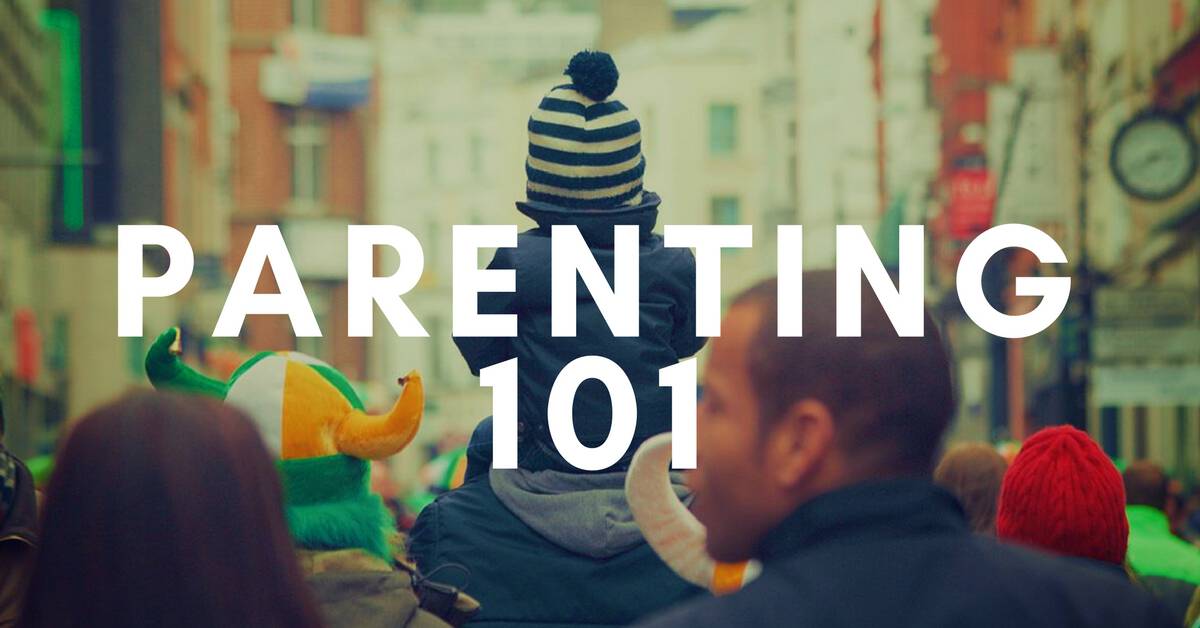
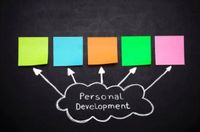
As a parent, it is your responsibility ... and understanding of the world. It is the ongoing duty of parents, teachers, and other adults to help children develop positive personality aspects. Continue reading for tips on moulding a child’s character into a positive personality ...
As a parent, it is your responsibility to make sure that your child grows up in a supportive atmosphere that can aid in their learning and understanding of the world. It is the ongoing duty of parents, teachers, and other adults to help children develop positive personality aspects. Continue reading for tips on moulding a child’s character into a positive personality right from childhood.Parenting is not only a challenging task but also very essential for the baby’s future. On a regular basis, you must learn and deal with a variety of issues that you have never seen or studied about before. Every child is born with a distinct personality, but the environment in which the child is reared also has a significant impact on personality development for kids.It is now appropriate to instil in them moral principles and behaviours that will help children develop into good people. As children imitate and learn from their parent’s behaviour, you become the single most important influencer on personality development for kids.Children who are developing their personalities are more likely to be focused and efficient. It helps people prioritise their jobs and do them efficiently in order to get the best results. Children constantly seek attention. Children get increasingly independent as they age. Toddlers and preschoolers frequently speak more to express themselves, especially when their language abilities are still growing. As parents, you can patiently hear their tales and instil in them a sense of trust and security.
It's often hard for parents and ... there is probably nothing kids would like more. Get up 10 minutes earlier in the morning so you can eat breakfast with your child or leave the dishes in the sink and take a walk after dinner....
Your words and actions as a parent affect their developing self-esteem more than anything else. Praising accomplishments, however small, will make them feel proud; letting kids do things independently will make them feel capable and strong. By contrast, belittling comments or comparing a child unfavorably with another will make kids feel worthless.If you often feel "let down" by your child's behavior, perhaps you have unrealistic expectations. Parents who think in "shoulds" (for example, "My kid should be potty-trained by now") might find it helpful to read up on the matter or to talk to other parents or child development specialists.Parenting is incredibly challenging and rewarding. Here are 9 child-rearing tips that can help.It's often hard for parents and kids to get together for a family meal, let alone spend quality time together. But there is probably nothing kids would like more. Get up 10 minutes earlier in the morning so you can eat breakfast with your child or leave the dishes in the sink and take a walk after dinner.

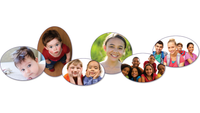
Learn more about child development, positive parenting, safety, and health for each life stage.
As a parent you give your children a good start in life—you nurture, protect, and guide them. Parenting is a process that prepares your child for independence. As your child grows and develops, there are many things you can do to help your child.The early years of a child’s life are very important for their health and development. Parents, health professionals, educators, and others can work together as partners to help children grow up to reach their full potential.These links will help you learn more about your child’s development, positive parenting, safety, and health at each stage of your child’s life.Healthy Habits Data and Statistics Resources for Child Development Positive Parenting Tips Keeping Children with Disabilities Safe View All
Learn about kids behavioral development, friends, gifted children, learning disabilities, puberty, shyness, and more from the editors of Parents magazine.
Is your kid on track? Here's what you need to know about child development for the older kid, including appropriate behaviors, psychological development, social growth spurts, and emotional considerations.
:max_bytes(150000):strip_icc()/parents_social_placeholder-d92662fa0e70424d92fe1b3719548191.png)



:max_bytes(150000):strip_icc()/babywearing-baby-carrier-93d7056ab6734c80b663da85714b6aa8.jpg)

:max_bytes(150000):strip_icc()/550_101309537-0f2c3c3b6a6b48a69e8fae5169a80587.jpg)





:max_bytes(150000):strip_icc()/parents_social_placeholder-d92662fa0e70424d92fe1b3719548191.png)